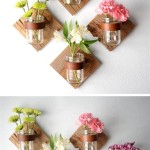Japanese Aesthetic Room Decor Ideas
Japanese aesthetic principles emphasize simplicity, natural beauty, and a harmonious balance between negative and positive space. Known as "wabi-sabi", this philosophy appreciates the beauty of imperfection and impermanence. Incorporating these principles into your room decor can create a serene and elegant space.
Neutral Color Palettes
Neutral colors like white, beige, and gray form the foundation of a Japanese-inspired room. These shades reflect natural elements such as sand, stone, and rice paper, creating a sense of tranquility. Soft earth tones, such as greens and browns, can also add warmth and depth to the space.
Natural Materials
Japanese aesthetics embrace natural materials that evoke the outdoors. Wood, stone, bamboo, and linen bring a sense of texture and organic warmth. Exposed wooden beams, tatami mats, and stone tiles create a connection to nature and add character to the room.
Asymmetrical Balance
Balance in Japanese design is often asymmetrical, creating a sense of visual interest and dynamism. Arrange furniture and decor in uneven groups or offset the weight of larger pieces with smaller ones. This creates a more visually engaging and fluid space.
Negative Space
Japanese aesthetics highly value negative space, which refers to the empty or unused areas in a room. This space allows the eye to rest and appreciate the harmony and flow of the design. Avoid overcrowding the room and create intentional voids to enhance the sense of spaciousness.
Lighting
Natural light is highly prized in Japanese design. Large windows or skylights allow ample sunlight to flood the room. Soft, diffused lighting, such as from paper lanterns or rice paper shades, creates a cozy and inviting atmosphere.
Minimalism
Japanese rooms are typically characterized by a minimalist approach. Declutter the space and only display essential items that bring you joy or have a meaningful purpose. Hide clutter in discreet storage solutions to maintain a sense of order and simplicity.
Shoji Screens and Fusuma Doors
Shoji screens and fusuma doors are traditional Japanese room dividers that add privacy and flexibility to the space. Made from translucent paper or wood frames, they allow light to filter through while providing a sense of separation.
Ikebana
Ikebana, the Japanese art of flower arrangement, is an integral part of Japanese aesthetics. A simple, asymmetrical arrangement of flowers and greenery in a vase adds a touch of nature and elegance to any room.
Zen Influences
Buddhist Zen principles often influence Japanese aesthetic choices. Use simple, muted colors, natural materials, and open spaces to create a sense of calm and tranquility. Meditative objects, such as Buddha statues or Zen gardens, can further enhance this meditative atmosphere.

The Top 61 Aesthetic Bedroom Ideas Small Room Cozy Bedrooms

𝐜 𝐨 𝐟 𝐞 𝐦 𝐥 𝐤 Kawaii Room Ideas Bedroom

How To Make Your Own Japanese Bedroom

10 Kawaii Room Decoration Stuff Ideas Cute Bedroom Makeover

Modern Japanese Interior Design In 2025 Color Schemes Concept Materials

Aesthetic Cute Kawaii Things To Buy In 2025 Room Decor Inspiration Bedroom Makeover

Kawaii Room Decor Perfect Addition To Your Bedroom

Aesthetic Roomcore Room Decor Dorm Accessories

Kawaii Japanese Room Aesthetic Decor

31 Serene Japanese Living Room Décor Ideas Digsdigs
Related Posts







